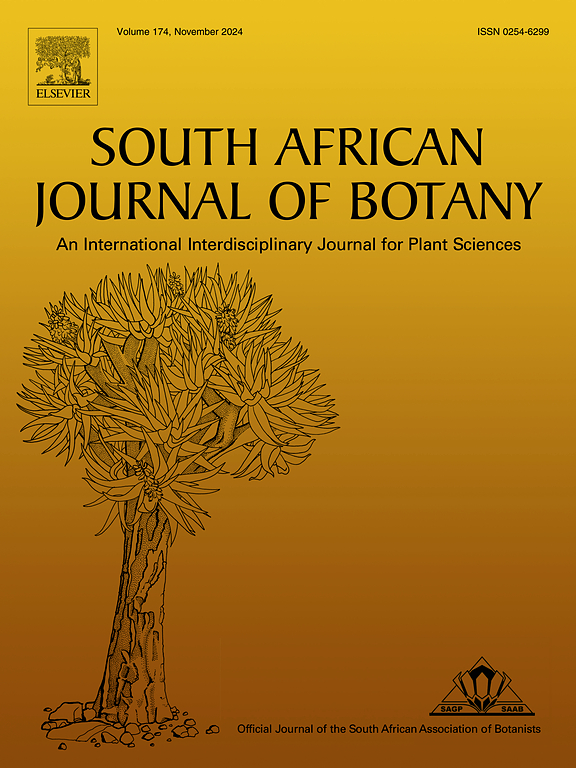A comparative review of breadfruit seeds (Treculia africana, Artocarpus nobilis, and Artocarpus heterophyllus): Nutritional composition, bioactive compounds, and processing techniques
IF 2.7
3区 生物学
Q2 PLANT SCIENCES
引用次数: 0
Abstract
This review highlights the critical issue of protein deficiency, impacting over 170 million preschool children and nursing mothers in developing nations. It focuses on Treculia africana Decne (African breadfruit), a species extensively cultivated and consumed in diverse forms. Despite its prevalence, limited assessments have been conducted on the nutritional content of breadfruit seeds when prepared using traditional household methods. This review explores the processing techniques, nutritional composition, and bioactive compounds of breadfruit seeds and provides a comparative analysis of different species, including Treculia africana, Artocarpus nobilis (Ceylon breadfruit), and Artocarpus heterophyllus. The seeds, particularly those processed via fermentation, show potential for incorporation into food products and traditional medicinal applications. By underscoring the nutritional and functional properties of African breadfruit and its seeds, this review contributes valuable insights into addressing protein malnutrition. Furthermore, it emphasizes the importance of locally sourced plant proteins and their role in enhancing global dietary practices, particularly in regions facing nutritional challenges.

面包果种子(trereculia africana、Artocarpus nobilis和Artocarpus heterophyllus)的营养成分、生物活性成分和加工技术比较
这篇综述强调了蛋白质缺乏的关键问题,影响着发展中国家1.7亿学龄前儿童和哺乳母亲。它的重点是非洲面包果,这是一种广泛种植和以多种形式消费的物种。尽管面包果普遍存在,但对使用传统家庭方法制备的面包果种子的营养成分进行了有限的评估。本文综述了面包果种子的加工技术、营养成分和生物活性成分,并对不同种类面包果(trereculia africana、Artocarpus nobilis(锡兰面包果)和Artocarpus heterophyllus)进行了比较分析。这些种子,特别是经过发酵处理的种子,显示出纳入食品和传统医药应用的潜力。通过强调非洲面包果及其种子的营养和功能特性,本综述为解决蛋白质营养不良提供了有价值的见解。此外,它还强调了当地来源的植物蛋白的重要性及其在加强全球饮食习惯方面的作用,特别是在面临营养挑战的地区。
本文章由计算机程序翻译,如有差异,请以英文原文为准。
求助全文
约1分钟内获得全文
求助全文
来源期刊

South African Journal of Botany
生物-植物科学
CiteScore
5.20
自引率
9.70%
发文量
709
审稿时长
61 days
期刊介绍:
The South African Journal of Botany publishes original papers that deal with the classification, biodiversity, morphology, physiology, molecular biology, ecology, biotechnology, ethnobotany and other botanically related aspects of species that are of importance to southern Africa. Manuscripts dealing with significant new findings on other species of the world and general botanical principles will also be considered and are encouraged.
 求助内容:
求助内容: 应助结果提醒方式:
应助结果提醒方式:


